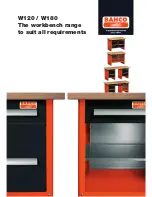
Setting
Description
Folder Name
Specify a folder name that contains 1 to 64 characters and that does
not:
• Begin or end with a space
• Contain consecutive spaces
• End with "."
• Begin with "_sn_" or "_sn_bk"
• Contain the following characters: " + = / \ : | * ? < > ; [ ] % ` '.
Comment (optional)
Specify a comment that contains 1 to 128 ASCII characters.
The information is for your reference and is not used by QTS.
Disk Volume
Specify the volume on which the shared folder will be created.
Qtier Auto Tiering
When enabled, Qtier performs auto-tiering on data in the folder.
For details, see
.
This setting is only available if you select a Qtier-enabled storage pool.
Tip
You can also enable auto-tiering from the
Shared
Folders
screen.
Path
Modify the folder path.
Hide network drive
Selecting this option hides the folder in Windows networks. Users who
know the specific path can still access the folder.
Lock File (Oplocks)
Opportunistic lock (Oplocks) is a Windows file locking mechanism that
facilitates caching and access control to improve performance. This
feature is enabled by default and should only be disabled in networks
where multiple users simultaneously access the same files.
SMB Encryption
This option is available only when SMB3 is enabled. Selecting this
option encrypts all Microsoft network communication using the SMB3
protocol.
Enable Windows Previous
Versions
When enabled, the Previous Versions feature in Windows can be used
with the shared folder.
Enable Network Recycle Bin
Selecting this option creates a Recycle Bin for this shared folder.
Restrict the access of Recycle
Bin to administrators only for
now
Selecting this option prevents non-administrator users from recovering
or deleting files in the Recycle Bin.
Note
This option is available only when
Enable Network
Recycle Bin
is selected.
Enable write-only access on
FTP connection
When enabled, only the admin has read and write access to the
shared folder. Other users will only be able to write to the folder.
Only allows applications to
access files using the long file
name format
When selected, applications can only use the long file name (LFN)
format to access files in the shared folder.
QTS 4.5.x User Guide
Privilege Settings
75
















































